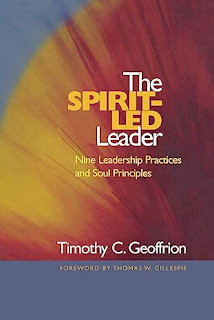The Secret Message of Jesus - Book Review
Did you know that Jesus was not a Christian? Is it possible that we’ve created “Jesuses” who have nothing to do with the real Jesus of Nazareth? How about his message? Could we have missed something that rediscovering could change everything? Why is it wrong to consider Jesus as a ticket to heaven only?
In a time when most people believe that the only things that are real are those that can be proven and measured, Brian McLaren gives a case for a spiritual quest and shows the necessity of grappling with a set of new and old questions regarding Jesus and his message.
The major invitation of the book is to consider the possibility: What if Jesus of Nazareth was right – more right, and right in different ways, than we have ever realized? What if Jesus had a message that truly could change the world, but we’re prone to miss the point of it? What if the core message of Jesus has been unintentionally misunderstood or intentionally distorted?
The author says that sincerity is not a justification for believing wrong things. We can in fact be sincerely wrong! Brian calls for repentance; that is rethinking our ways and believing and looking at Jesus and his message with freshness – like children.
Brian explores the political and social dimension to Jesus’ time and message and invites us to have another look at his religious background. Jesus proclaimed the Good News of the Kingdom of God and provocatively proclaimed that that Kingdom was at hand. For now!
The message of Jesus brings transformation in individuals, faith communities, neighborhoods and even cultures. When this quiet transformation is happening, people often hardly notice, as Jesus said, the kingdom advances as a seed growing or as yeast rising in a loaf of bread.
Like Jesus, Brain uses imagery to help us envision what the kingdom might be compare too in our time including: The dream of God, The revolution of God, The mission of God, the party of God, the network of God, the dance of God. And this revolution cannot use the corrupt tactics of the current ways of the world, otherwise, it will only replace one corrupt regime with another.
The author talks of purposeful inclusion for those who want to participate in the kingdom, in that the kingdom of God seeks to include all who want to participate in and contribute to its purpose, but it cannot include those who oppose its purpose. It seems paradoxical that to be truly inclusive, the kingdom must exclude exclusive people, to be truly reconciling, the kingdom must not reconcile with those who refuse reconciliation, to achieve its purpose of gathering people, it must not gather those who scatter.
Brian points out that his deepest joy has never been to have all his dreams come true, but rather to have God’s one dream come true: that this world will become a place God is at home in, a place God takes pride and pleasure in a place where God’s dreams come true.
We need to step back and take a long view and realize that the Kingdom is not only beyond our efforts, it is beyond our vision. So we definitely need God to help us as we bring out tiny contribution to the edifice!
Four Extracts from the book:
1. “Many people don’t realize that the Christian religion – I it Catholic, Protestant, Orthodox and Pentecostal forms – is the largest, richest and most powerful religion in the world. If the Christian religion ‘misunderestimates’ the message of Jesus – if it doesn’t know or believe the truth about Jesus and his message – the whole world will suffer from Christian ignorance, confusion, or delusion. But if it discovers, understands, believe, and lives Jesus’ message – if it becomes increasingly faithful to the reality of what Jesus taught in word and example – then everyone could benefit: Christian, Jews, Muslims, Hindus, Buddhists, agnostics, atheists, everyone”
2. “What if the only way for the Kingdom of God to come in its true form – as a kingdom ‘not of this world’ – is through weakness and vulnerability, sacrifice and love? What if it can conquer only by first being conquered? What is being conquered is absolutely necessary to expose the brutal violence and dark oppression of these principalities and powers, these human ideologies and counter-kingdoms – so they having been exposed, can be seen for what they are and freely rejected, making room for the new and better kingdom? What if the kingdom of God must in these ways fail in order to succeed?”
3. “This understanding of the secret message of Jesus and its bearing on the future doesn’t answer every question or satisfy every wish. It is disappointing as a blueprint of the future. But unlike conventional blueprint understandings, it gives us three things we need. First, it gives us warning and promise – so that we live life in this world with urgency, awareness, intensity, mission, direction, courage, hope and vigor. Second, it gives us a sense of empowerment and responsibility, not fatalism and resignation. In other words, it invites us – beginning now – to wake up and live life to the full. Third, it helps us see the kingdom as having come so that we can now enter it, and as still coming so that we diligently and passionately pray for it, welcome it, receive it and seek it.”
4. “Nothing is more dangerous to the advancement of God’s kingdom than religion. Bur this is what Christianity has become. Do you not know it is possible to kill Christ with such Christianity?”
Muhindo Malunga Lusukiro
Reflections on life, humanity, development and leadership
muhindoml@gmail.com | +243 993 401 064
Skype: Muhindo Malunga Lusukiro (muhindoml) | Twitter: @muhindoml





Comments
Post a Comment